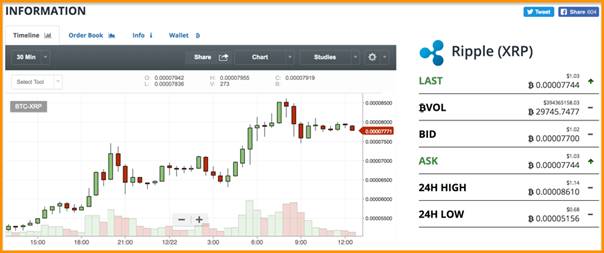
2020-7-18 12:00 |
The Indian cryptocurrency market is teeming with entrepreneurs, funds, and tech know-how to create a vibrant crypto-ecosystem. Yet, it faces a crisis buoyed by slow-moving policies, wayward regulations, and difficult-to-please lawmakers.
This week, Ripple tweeted about its policy framework for pushing digital assets in India, a paper initially published in June that outlined four major steps that the local government could refer to while making frameworks for the market.
Fintech #regulation that sponsors #innovation & protects consumers is necessary for worldwide digital asset adoption. Check out our proposed policy framework for digital assets in India. https://t.co/RzwqogdilP
— Ripple (@Ripple) July 15, 2020
Four points outlinedThe policy paper offers a global overview of the steps taken by governments elsewhere, such as the U.S., the U.K, and Singapore, and recommends both short- and long-term actions for the Indian government.
First is adopting a “digital asset taxonomy consistent with global practice.” This step involves providing clarity to the legal character of digital assets. India has struggled with this point historically; “banning” and unbanning cryptocurrencies several times while the country’s top regulators — the Reserve Bank of India (RBI) and the Supreme Court — differ on the legality of digital assets.
Next is to enact a facilitative legal framework for digital asset service providers at the Gujarat International Finance Tec-City (GIFT). GIFT is India’s first “operational smart city” combining technology with administrative functions that positions itself as a global business district.
Ripple earmarks the “GIFT” city in India as one the government must allow crypto-development in. (Source: Rediff)Giving blockchain- and crypto-entrepreneurs a legal springboard could be helpful. “This can attract mature global participants to GIFT for developing enterprise use-cases of digital assets,” said Ripple.
The third is to modify the RBI’s Regulatory Sandbox Framework to remove “cryptocurrency” and “crypto-asset services” from the negative list. Doing so would ensure existing and potential businesses and solutions have an opportunity to conduct pilot tests relevant to the Indian market.
Last is implementing a “conducive regulatory framework for digital assets by amending specific financial sector laws.” Ripple states bourses like the Securities and Exchange Board of India (SEBI) must license, regulate, and supervise digital asset service providers in the country.
Cryptocurrencies with legacy financeSo far, any Indian crypto-finance provider is not affiliated to or recognized by a financial regulator; oft being domiciled and regulated in Singapore while catering to Indian citizens.
The 34-page-long report touches on specific laws and recommends updates to fit with a newer financial narrative. Meanwhile, the firm believes measures to protect consumers against risk while tapping the benefits must be India’s agenda:
“The regulatory goal should be to harness the upside and mitigate the downside risks, through moderate regulation.”
The Indian ecosystem is ripe for disruption by newer technologies like AI and blockchain. While the two are seeing extensive development in the country, not much takes place with regards to cryptocurrencies.
The post Ripple outlines four crucial steps to push cryptocurrencies in India appeared first on CryptoSlate.
origin »Bitcoin price in Telegram @btc_price_every_hour
4THPILLAR TECHNOLOGIES (FOUR) на Currencies.ru
|
|












